The Impact of Soft Skills in Interviews: What Employers Really Look For
In today's competitive job market, having the right qualifications and technical skills is undoubtedly important. However, what often sets candidates apart and determines their success in landing a job is their possession of soft skills. Soft skills, also known as interpersonal or non-technical skills, encompass a wide range of attributes that contribute to one's ability to work well with others, communicate effectively, and adapt to different situations. In this blog, we'll delve into the significance of soft skills in interviews and provide examples to illustrate what employers truly value.
- Communication Skills: Effective communication is arguably one of the most sought-after soft skills by employers. Being able to articulate ideas clearly, listen actively, and convey information concisely are essential in any workplace setting. During interviews, candidates who demonstrate strong communication skills stand out as they can effectively convey their thoughts, actively engage with interviewers, and build rapport.
Example: Imagine two candidates being interviewed for a customer service role. Candidate A responds to questions with confidence, maintains eye contact, and provides clear and concise answers. On the other hand, Candidate B struggles to express themselves, often stumbles over words, and appears hesitant. Despite having similar qualifications, Candidate A's superior communication skills make them a more appealing choice for the role.
- Teamwork and Collaboration: Employers place great value on candidates who can collaborate effectively with others to achieve common goals. Being a team player involves not only contributing ideas and expertise but also being open to feedback, resolving conflicts amicably, and supporting colleagues when needed. During interviews, candidates may be asked about their experiences working in teams and how they handle challenges that arise in a collaborative environment.
Example: Consider a job interview for a project management position. The interviewer asks the candidates to describe a time when they had to work as part of a team to overcome a significant obstacle. Candidate A shares a compelling story about how they led a cross-functional team to meet tight deadlines by delegating tasks effectively and fostering a collaborative atmosphere. In contrast, Candidate B struggles to provide a relevant example and appears to lack experience working in teams.
- Problem-Solving Abilities: In today's dynamic work environment, employers seek individuals who can think critically, analyze complex situations, and devise innovative solutions to problems. Problem-solving skills demonstrate a candidate's ability to adapt to new challenges, troubleshoot issues, and make informed decisions under pressure. During interviews, candidates may be presented with hypothetical scenarios or asked to discuss how they've overcome obstacles in the past.
Example: Suppose two candidates are interviewing for a technical support role. The interviewer presents them with a scenario where a customer is experiencing a recurring issue with a software application. Candidate A demonstrates strong problem-solving skills by asking clarifying questions, diagnosing the root cause of the problem, and proposing a solution that addresses the issue effectively. In contrast, Candidate B struggles to formulate a coherent response and appears overwhelmed by the complexity of the scenario.
- Adaptability and Flexibility: In today's rapidly evolving job market, adaptability has become a crucial skill. Employers value candidates who can adapt to changes, learn new skills quickly, and thrive in diverse work environments. Adaptability is particularly important in industries undergoing digital transformation or facing unpredictable market conditions. During interviews, candidates may be asked about their experiences adapting to change and how they approach new challenges.
Example: Consider a job interview for a marketing position in a startup company. The interviewer asks the candidates how they would handle a sudden shift in marketing strategy due to changes in market dynamics. Candidate A demonstrates adaptability by outlining a flexible approach that involves conducting market research, reassessing target demographics, and adjusting marketing tactics accordingly. Candidate B, however, struggles to articulate a coherent plan and appears rigid in their thinking.
- Leadership Skills: Leadership skills are highly valued by employers, even for roles that may not have a formal leadership title. Candidates who demonstrate leadership qualities show initiative, inspire others, and have the ability to motivate teams toward achieving common goals. During interviews, candidates may be asked to provide examples of times when they've taken on leadership roles, whether formally or informally, and how they've influenced outcomes.
Example: Suppose two candidates are interviewing for a mid-level management position. The interviewer asks them to describe a situation where they had to lead a team through a challenging project. Candidate A shares a compelling story about how they identified a gap in the team's workflow, proposed a new strategy, and motivated team members to exceed project goals. Candidate B struggles to provide a relevant example and appears to lack experience in leadership roles.
- Emotional Intelligence: Emotional intelligence, often referred to as EQ, is the ability to recognize and manage one's emotions and empathize with others. Candidates with high emotional intelligence are adept at building relationships, resolving conflicts diplomatically, and navigating interpersonal dynamics effectively. Employers recognize the importance of EQ in fostering a positive work environment and promoting collaboration among team members.
Example: Consider a job interview for a managerial position in a customer service department. The interviewer asks the candidates to describe how they would handle a situation where a team member is struggling with performance issues. Candidate A demonstrates high emotional intelligence by expressing empathy towards the team member, offering support and guidance, and working collaboratively to identify solutions. Candidate B, however, appears to lack sensitivity to the team member's situation and focuses solely on reprimanding them for underperformance.
- Time Management and Organization: Effective time management and organizational skills are essential for success in any role. Employers value candidates who can prioritize tasks, meet deadlines consistently, and manage their workload efficiently. During interviews, candidates may be asked about their approach to time management and how they handle competing priorities in a fast-paced work environment.
Example: Suppose two candidates are interviewing for a project coordinator position. The interviewer asks them to describe how they would prioritize tasks to meet a tight project deadline. Candidate A outlines a systematic approach to task prioritization, emphasizing the importance of setting realistic goals, allocating resources efficiently, and communicating effectively with stakeholders. Candidate B struggles to articulate a coherent plan and appears overwhelmed by the prospect of managing multiple deadlines simultaneously.
In summary, soft skills such as leadership, emotional intelligence, and time management are essential attributes that employers look for in candidates during interviews. By showcasing these skills effectively and providing compelling examples of their application, candidates can differentiate themselves from the competition and increase their chances of securing their desired roles in today's competitive job market.
Also, if you are looking for resume writing or interview preparation services, you can write to us at info@truecv.com or call 9711200318 | 7701990512
Happy reading!








